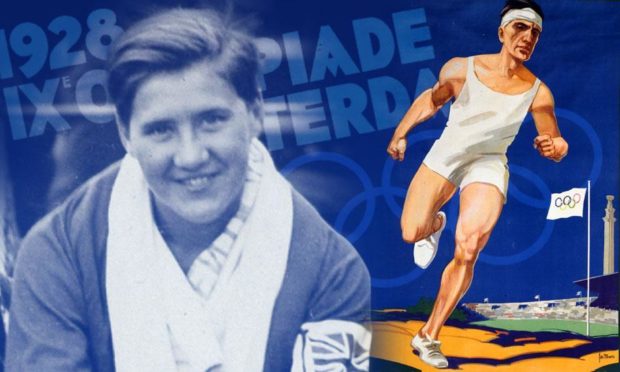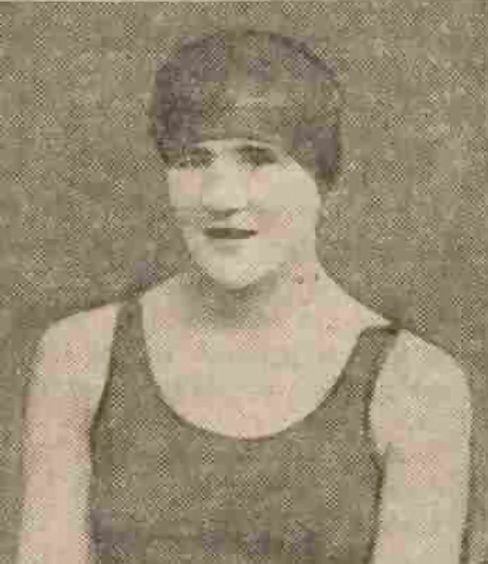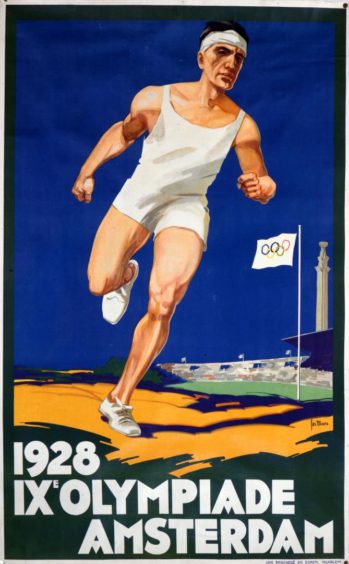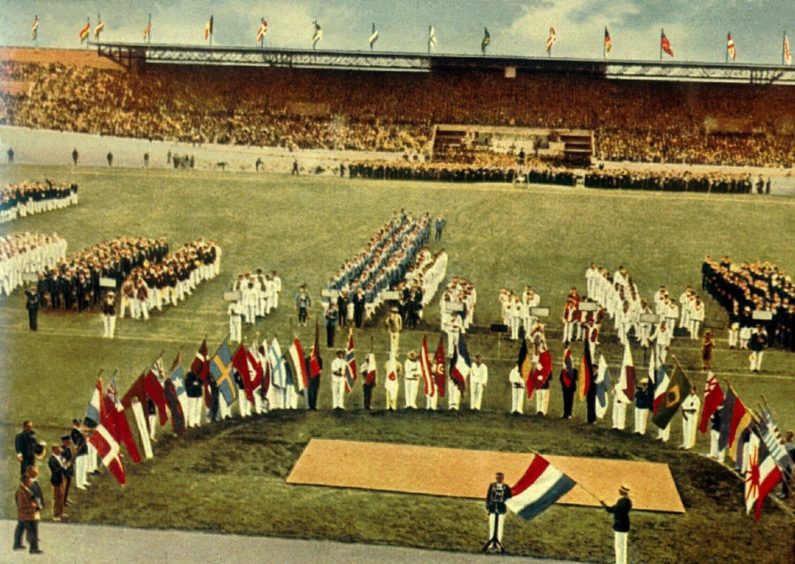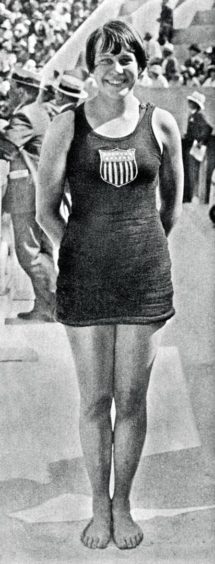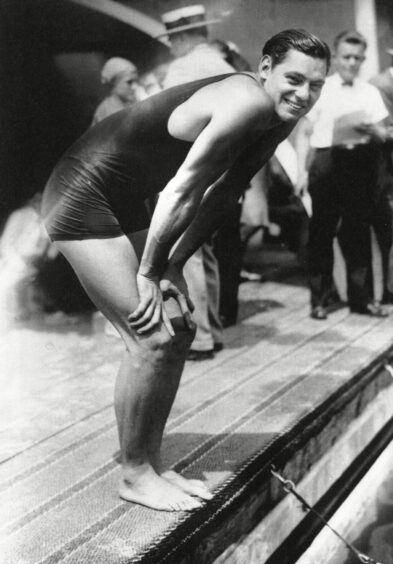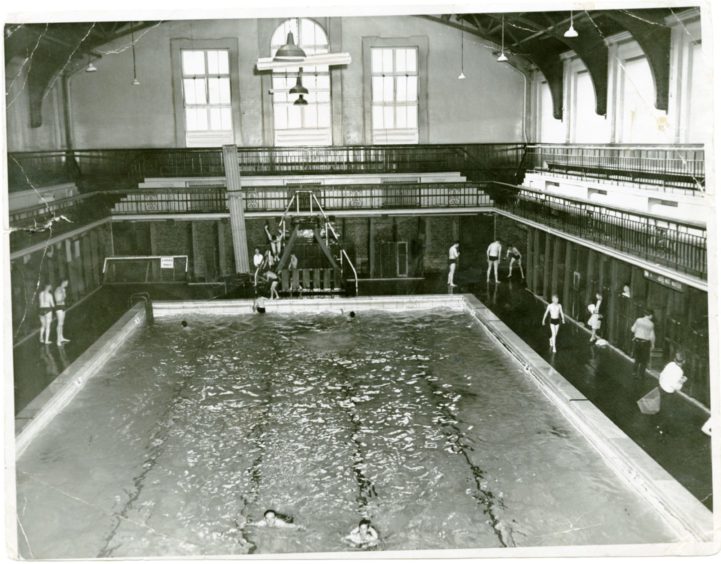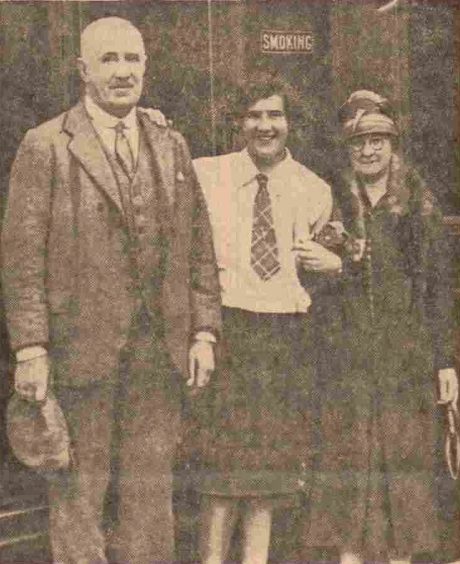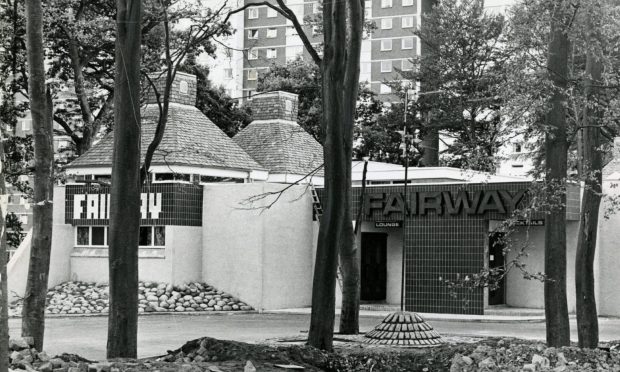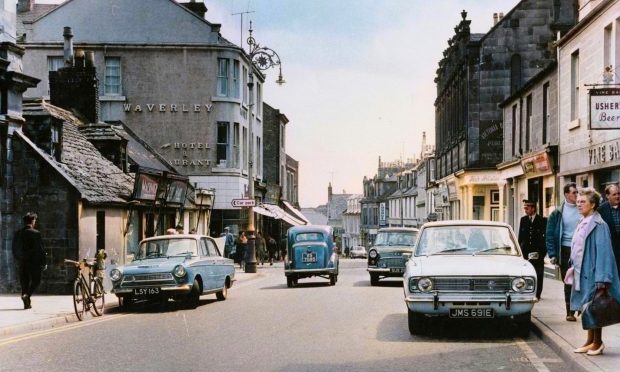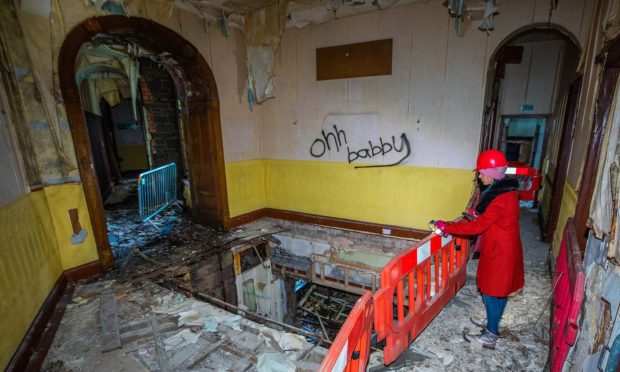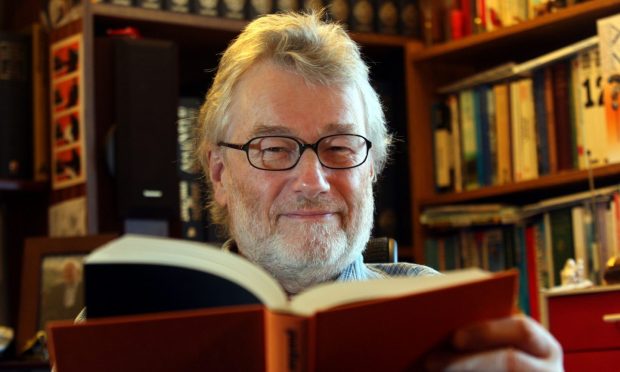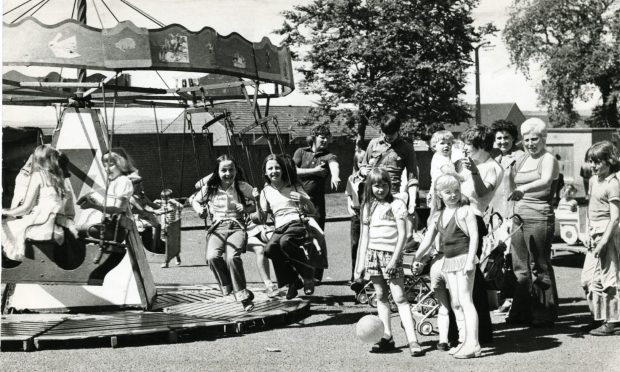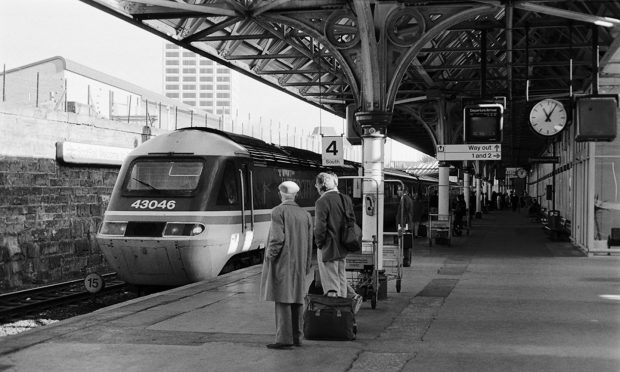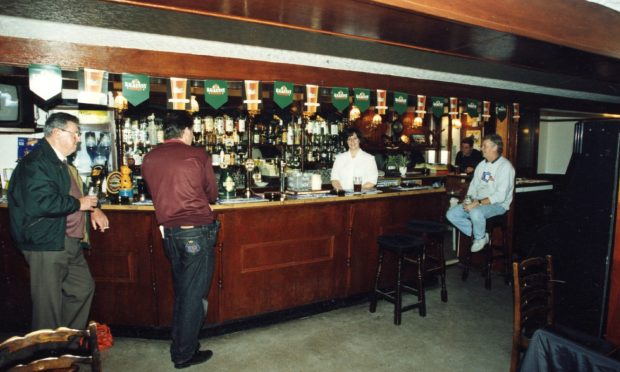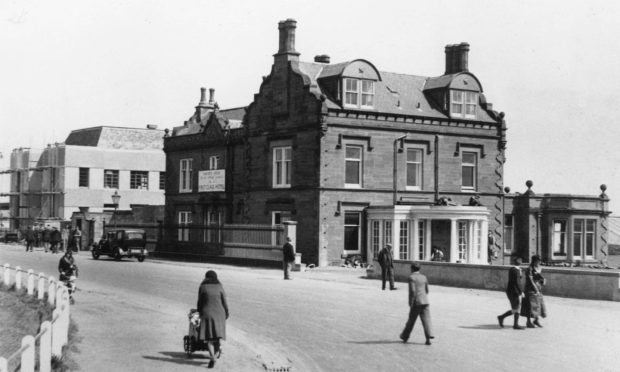Sarah ‘Cissie’ Stewart was the first Dundonian to win an Olympic medal, against all the odds and with no coaching.
When she stepped up her training before the 1928 Olympics she was reprimanded by the Dundee Baths manager for using her season ticket twice a day!
He made her buy additional tickets to complete her training before she travelled to Amsterdam with the Team GB squad to take on the world’s best.
Cissie, then 17, won silver in the 4×100 metres freestyle relay and finished fourth in the individual 400m final despite suffering from an arm injury.
She surpassed all expectations but there were no flag waving ceremonies in those days and no welcome home celebrations at the railway station.
The contrast with today’s Olympians couldn’t be more marked.
Cissie simply got off the train and went home.
Who was Cissie Stewart?
Cissie was brought up in the Dudhope Street area and worked as a bakery assistant.
Sport was in her blood.
Sister Margaret was a Scottish swimming champion.
Her father Willie had been captain of Newton Heath, the forerunner of Manchester United.
He later played for Dundee FC and turned out for Forfarshire Cricket Club.
Cissie first attracted attention at the Scottish time tests in Dundee in the winter of 1925 when she gained a silver medal in the 220 yard freestyle.
She became Scottish junior champion over 100 yards aged 15 with a time of 71 seconds and by the time she was 16 she had broken six Scottish records.
The teenager travelled to Blackpool for the Olympic trials in June 1928, swam her socks off and was selected for the team.
Cissie had to buy extra tickets to train
She was a member of the Dundee Belmont swimming club although her preparation for the Olympics did not run smoothly.
“There were no sponsors, no going to a warm country to train, no electronic timing, everything was timed by hand held watches,” she said.
“I worked hard on my own to get where I did.
“My training was hard going – I just swam up and down.
“I never had a coach.
“When I was training seriously I used to go down to the baths twice a day and swim 30 lengths.
“That’s all I did.
“One time when it was coming up to the Olympics I remember going to the pool twice a day.
“This particular day the baths manager took me to one side and reprimanded me for using my season ticket twice in the same day!
“I was accused of trying to cheat the rate-payers and had to buy a series of additional tickets to complete my training.”
She set a personal best after arm injury
Cissie was treated for an arm injury in Amsterdam where she spoke of the prospect of having to beat world records to defeat the dazzling American team.
She wrote a letter home to friend in Dundee where the handwriting deteriorated towards the fifth page and finished with an apology for the scrawl.
Cissie went into action just two days later against the American Martha Norelius who was the gold medallist at Paris in 1924 and holder of 17 world records.
Norelius set a world record in the heat but Cissie came second.
In her semi-final, Cissie set a personal best time and matched Norelius’s performance in the second half of the race to qualify for the final.
Cissie missed out on bronze and came fourth in the final but went on to claim silver for Great Britain with the 4×100 metres relay team.
The Courier reported her Olympic adventure under the headline “Grit Pulled Her Through; Miss Stewart Wins World Honour”.
Local historian Dr Norman Watson said: “When she finished her race, she got dressed and went back to the hotel.
“And that was it.
“There was no medal ceremony or celebration.
“Arriving back in Dundee there was no one to meet her off the train.
“She walked home and there was no fuss.
“She recalled how not even that evening’s tea was special.
“Then the 17-year-old waited two months for the coveted silver medal to be presented to her at a gala at Dundee Central Baths.”
Another Dundonian who was also a Belmont member, Jimmy Wilson, won two bronze medals at Amsterdam, but they were for Canada as he emigrated there a few years before the Games.
Cissie became friends with American swimming gold medallist Johnny Weissmuller in Amsterdam who went on to play Tarzan in six movies in the 1930s and 1940s.
Weissmuller won two Olympic gold medals at the 1928 Games and posed for pictures afterwards with Cissie and her team-mates in the athletes’ village.
Setting a new record in Dundee
Cissie followed up success at the Olympics by establishing a new British half-mile record at Dundee Baths on September 1 1928 which stood for 10 years.
She performed in front of a full house, setting the new best of 12:43.6, and, such was the demand to see the young Olympian, hundreds of fans were locked out.
The Courier said: “For several minutes the cheering continued unabated, punctuated time and time again with the Olympic victory war cry B-R-I-T-A-I-N.”
Cissie was second in the 1929 national 440-yard freestyle championship at Bristol before competing for Scotland in the 1930 Empire Games in Canada.
The 1930 team was hurriedly put together with next to no financial resources, and heavily dependent on the generosity of the Canadian hosts in Hamilton.
The Scottish team consisting of 13 competitors left Liverpool for Montreal aboard the Cunard liner Andania on August 6 which took eight days.
Recalling the journey in 1970, long-distance runner Dunky Wright remembered how the athletes kept fit during the cruise.
“The crew responded quickly to our mood and made a temporary swimming pool by stretching a huge tarpaulin across the hold with each corner fixed to an iron stanchion and filled with seawater,” he said.
“In it, the bonnie lasses of our swim team wiggled like tadpoles in a bowl right across the Atlantic.
“We all had our different ways of keeping in trim.
“For my part, I pounded round the top deck, taking the corners in the Charlie Chaplin manner, for a couple of hours each morning.
“The ‘heavies’ and the boxers did their training in the gym, encouraged by friendly passengers who were also willing to have a go.”
Cissie took a wedding dress to Canada
Cissie won two bronze medals in the 440 yards freestyle and the 4×100-yard freestyle relay alongside Jean McDowell, Jessie McVey and Ellen King.
During the Empire Games, Cissie married a reporter, William Hunt, also a swimmer and water polo player, whom she met at the Dundee baths.
William had also been a member of the Belmont Club, where he was a prominent member of its polo team.
William was the son of the family who had the post office in Victoria Road.
He became a journalist for The Courier, working in Dundee and Cupar, before taking a job in Glasgow.
She had concealed her wedding dress in an additional suitcase and did not reveal to anyone what she was about to do.
The pair then broke the news to their parents in Dundee through telegrams.
Cissie moved to Glasgow and retired from competitive swimming before staging a comeback in 1934 after becoming tired of being a spectator.
She was still a holder of six records when she returned to compete but there was no return to past glories before the outbreak of World War One.
In 1990, to celebrate their 60th wedding anniversary, Cissie and William returned to Canada to trace the little church where they married.
Cissie settled in Troon and led an active life until her death in 2008 aged 96.
Other Dundee swimmers who took part at the Olympics were Bob Sreenan, Helsinki 1952, and Ian Blyth, 1960 Rome.
Both were Whitehall members.
Dougie Campbell and Paul Marshall, Moscow 1980, and Ian Campbell, City of Dundee, Los Angeles 1984, also competed for Team GB.
